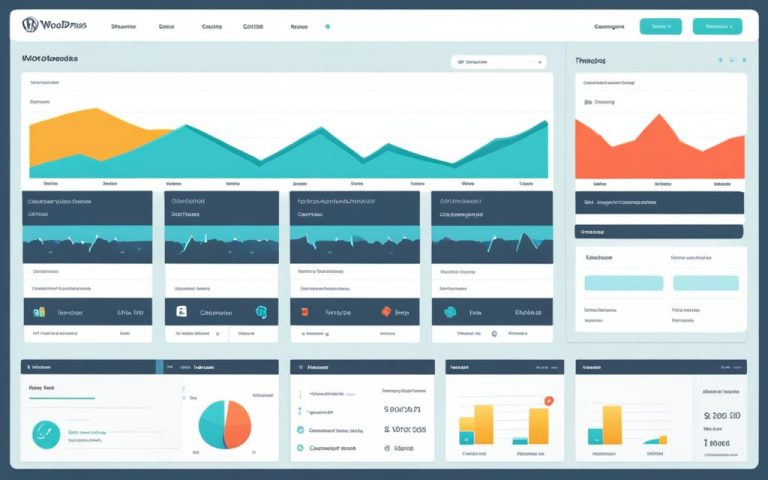Off-Page SEO Strategies for Boosting Rankings
In the world of search engine optimization (SEO), off-page strategies play a crucial role in improving website rankings. While on-page SEO focuses on optimizing elements within a website, such as content and meta tags, off-page SEO involves activities conducted outside of the website to enhance its credibility, authority, and visibility.
One of the key components of off-page SEO is link building, which involves acquiring high-quality backlinks from authoritative websites. These backlinks act as votes of confidence for search engines, indicating that your website is trustworthy and valuable.
Another effective off-page SEO technique is guest posting, where you write and publish articles on other relevant websites. This not only helps you reach new audiences but also allows you to gain valuable backlinks to your own website.
Social media marketing is also a powerful off-page strategy. By engaging with users and promoting your content on social media platforms, you can increase your brand visibility, drive traffic to your website, and improve your website’s authority.
Ultimately, off-page SEO is all about building your website’s credibility and authority in the eyes of search engines and users. By implementing these off-page strategies effectively, you can boost your website rankings, improve your search engine visibility, and achieve online success.
Continue reading to discover the importance of off-page SEO for website success and how it differs from on-page SEO…
The Importance of Off-Page SEO for Website Success
Off-page SEO plays a crucial role in improving a website’s search engine rankings and visibility. While on-page SEO focuses on optimizing elements within a website, off-page SEO works externally to establish the website’s reputation and authority in the digital space.
One of the key aspects of off-page SEO is link building. By acquiring high-quality backlinks from reputable websites, a website can boost its credibility and increase its search engine visibility. These backlinks act as “votes of confidence” from other websites, indicating to search engines that the website is trustworthy and valuable.
Social media marketing is another essential off-page SEO strategy. By actively engaging on social media platforms and promoting valuable content, a website can generate social signals and attract a wider audience. This not only improves website visibility but also enhances its reputation in the eyes of search engines.
“Off-page SEO signals, such as backlinks and social media shares, indicate to search engines that the website is trustworthy and valuable.”
Search engines consider off-page SEO signals as valuable indicators of a website’s relevance and popularity. The more credible and relevant the backlinks, the higher the website’s rankings. Similarly, active social media engagement leads to increased brand exposure and user engagement, further boosting website reputation and authority.
Implementing a strong off-page SEO strategy is crucial for website success. It goes beyond optimizing individual web pages and focuses on building a favorable online reputation. By leveraging effective off-page SEO techniques, such as link building and social media marketing, a website can enhance its search engine rankings, increase visibility, and attract organic traffic.
| Benefits of Off-Page SEO | Techniques |
|---|---|
| Improved website rankings | Strategic link building |
| Increased search engine visibility | Engaging social media marketing |
| Enhanced website reputation | Collaborative content marketing |
| Effective influencer marketing |
Link Building as an Off-Page SEO Technique
Link building is a fundamental aspect of off-page SEO. By acquiring backlinks from high-quality and relevant websites, a website can boost its authority and visibility in search engine results. Effective link building techniques include:
- Guest posting on authoritative websites
- Building relationships with industry influencers
- Submitting content to reputable directories
- Earning natural backlinks through valuable content
When engaging in link building, it’s essential to focus on quality over quantity. High-quality backlinks from authoritative websites have a more significant impact on search engine rankings and website reputation.
Social Media Marketing for Off-Page SEO
Social media marketing is a powerful off-page SEO technique that can enhance a website’s visibility and engagement. By actively sharing valuable content, engaging with followers, and collaborating with influencers, a website can increase brand awareness and attract organic traffic. Social media platforms such as Facebook, Twitter, and Instagram provide opportunities for brand promotion, content distribution, and community building.
A robust off-page SEO strategy that incorporates link building and social media marketing can significantly improve a website’s search engine rankings, visibility, and overall success. By establishing a strong online presence and building relationships with relevant websites and social media influencers, a website can enhance its authority in the digital landscape.
Understanding the Difference Between On-Page and Off-Page SEO
In the world of search engine optimization (SEO), there are two key strategies that work hand in hand to improve website visibility and rankings: on-page SEO and off-page SEO. While both play crucial roles in optimizing a website, they focus on different aspects and employ distinct techniques. Let’s explore the differences between on-page and off-page SEO to gain a better understanding of their respective roles in website optimization.
On-Page SEO: Optimizing Elements Within the Website
On-page SEO pertains to the optimization of elements within a website itself. This includes optimizing content, meta tags, URLs, and other on-site factors to enhance the website’s relevance and user experience. Key activities involved in on-page SEO include:
- Keyword Research: Identifying relevant keywords and incorporating them strategically throughout the content.
- Content Optimization: Creating high-quality, unique, and informative content that resonates with the target audience and aligns with the identified keywords.
- Meta Tag Optimization: Crafting compelling meta titles and descriptions that accurately represent the webpage’s content and entice users to click.
- URL Structure: Ensuring the URLs are clean, concise, and descriptive, making it easier for search engines and users to understand the page’s topic.
By focusing on on-page SEO, website owners can optimize their website’s individual pages to improve search engine rankings, attract organic traffic, and enhance the overall user experience.
Off-Page SEO: Boosting Visibility and Authority Outside the Website
In contrast, off-page SEO involves activities conducted outside of the website to improve its visibility and authority. Off-page SEO techniques primarily revolve around link building, social media marketing, and online reputation management. Key activities involved in off-page SEO include:
- Link Building: Acquiring high-quality backlinks from authoritative websites to increase the website’s credibility and search engine rankings.
- Social Media Marketing: Utilizing social media platforms to promote the website’s content, engage with the target audience, and drive traffic.
- Online Reputation Management: Monitoring and managing the website’s online reputation by actively addressing customer feedback, reviews, and mentions.
Off-page SEO signals, such as backlinks and social media shares, indicate to search engines that the website is trustworthy, valuable, and relevant. These activities help establish the website’s authority and credibility in the online landscape.
In summary, both on-page and off-page SEO are essential components of a comprehensive SEO strategy. While on-page SEO focuses on optimizing elements within the website, off-page SEO involves activities conducted outside of the website to boost its visibility and authority. These strategies work together to improve search engine rankings, increase organic traffic, and enhance the overall online presence of a website.
Effective Off-Page SEO Techniques to Boost Website Authority
Implementing off-page SEO techniques is crucial for boosting a website’s authority and visibility. These techniques help enhance a website’s online presence and credibility. Let’s explore some effective off-page strategies:
- Link Building: Acquiring high-quality backlinks from authoritative websites is a cornerstone of off-page SEO. These backlinks signal to search engines that your website is trustworthy and valuable. Focus on building natural and relevant links that add value to your target audience.
- Content Marketing: Creating valuable and engaging content is a powerful off-page SEO technique. By distributing your content through various channels such as digital PR, social media, and influencer marketing, you can increase brand visibility and attract more traffic to your website.
- Guest Posting: Writing and publishing articles on other websites in your industry helps you reach new audiences and gain valuable backlinks. Guest posting allows you to establish yourself as an authority and build relationships within your niche.
- Social Media Marketing: Leveraging social media platforms to promote your content and engage with your audience is a key off-page SEO strategy. By consistently sharing valuable content, interacting with users, and building a strong social media presence, you can increase brand visibility and drive traffic to your website.
- Content Syndication: Republishing your content on other relevant websites can expand your reach and enhance brand exposure. Content syndication allows you to tap into new audiences and attract more visitors to your website, ultimately boosting your authority in the eyes of search engines.
By incorporating these off-page SEO techniques into your overall digital strategy, you can improve your website’s authority, visibility, and organic search rankings.
Enhancing SEO Rankings with Off-Page Strategies
Off-page SEO is a critical aspect of a successful SEO strategy. While on-page optimization focuses on optimizing elements within a website, off-page SEO involves activities conducted outside of the website to improve its visibility and authority. By implementing effective off-page techniques such as link building, content marketing, and social media marketing, a website can significantly enhance its search engine rankings, boost its authority, and increase its visibility.
Link building plays a crucial role in off-page SEO. By acquiring high-quality backlinks from authoritative websites, a website can improve its website rankings and increase its online presence. Building a network of credible links not only signals to search engines that the website is trustworthy, but it also drives relevant traffic to the site, increasing its authority and credibility.
Content marketing is another essential off-page strategy. By creating valuable and engaging content, a website can attract a larger audience and generate more interest and shares. Sharing this content through various channels, such as social media platforms and influencer marketing, can drive traffic and backlinks to the website, ultimately improving its search engine optimization and authority in the process.
Overall, a well-rounded off-page SEO strategy that complements on-page optimization efforts is crucial for achieving optimal results in website rankings and organic traffic. By focusing on link building, content marketing, and other off-page techniques, a website can establish its authority, boost its visibility, and enhance its overall search engine optimization.
FAQ
What is off-page SEO?
Off-page SEO refers to the activities and strategies used outside of a website to improve its search engine rankings. It includes techniques such as link building, guest posting, and social media marketing. The goal is to enhance the website’s credibility and authority in the eyes of search engines and users.
Why is off-page SEO important?
Off-page SEO plays a crucial role in improving a website’s search engine rankings and visibility. It helps establish the website’s reputation and authority by acquiring high-quality backlinks and engaging in social media marketing. Off-page SEO signals, such as backlinks and social media shares, indicate to search engines that the website is trustworthy and valuable. A strong off-page SEO strategy can lead to higher rankings, increased website visibility, and improved user engagement.
What is the difference between on-page and off-page SEO?
On-page SEO focuses on optimizing elements within a website, such as content, meta tags, and URLs. It involves keyword research and content optimization to improve the website’s relevance and user experience. Off-page SEO, on the other hand, involves activities conducted outside of the website to improve its visibility and authority. This includes link building, social media marketing, and online reputation management. Both on-page and off-page SEO are essential for a comprehensive SEO strategy, with technical SEO also playing a role in improving search visibility.
What are some effective off-page SEO techniques?
There are several effective off-page SEO techniques that can help boost a website’s authority and visibility. These include:
- Link Building: Acquiring high-quality backlinks from authoritative websites to improve search engine rankings.
- Content Marketing: Creating valuable content and distributing it through various channels, such as digital PR, social media, and influencer marketing.
- Guest Posting: Writing and publishing articles on other websites to reach new audiences and gain backlinks.
- Social Media Marketing: Promoting content and engaging with users on social media platforms to increase brand visibility and generate traffic.
- Content Syndication: Republishing content on other websites to reach a wider audience and enhance brand exposure.
How can off-page SEO enhance website rankings?
Off-page SEO is a critical aspect of a successful SEO strategy. By implementing effective off-page techniques such as link building, content marketing, and social media marketing, a website can improve its search engine rankings, boost its authority, and increase its visibility. It is important to develop a well-rounded off-page SEO strategy that complements on-page optimization efforts to achieve optimum results in website rankings and organic traffic.














